Revolutionary Architectural Visualization Through AI
This breathtaking contemporary residence exemplifies the remarkable capabilities of AI-generated architectural visualization. The image perfectly captures the essence of modern luxury living with its bold geometric forms, dramatic cantilevers, and harmonious integration with the surrounding landscape. What's most impressive is how the artificial intelligence has created a visualization that balances architectural boldness with practical livability, producing a design that feels simultaneously aspirational yet achievable. The AI has masterfully rendered the interplay between solid and void—contrasting the stark black structural elements with expansive glass walls that dissolve the boundary between interior and exterior spaces.
The visualization showcases impeccable attention to detail, from the precise reflection of the structure in the infinity pool to the subtle ambient lighting that accentuates the architectural features as dusk approaches. Notice how the AI has calculated complex lighting conditions, creating realistic shadows and reflections that ground the structure in its environment while highlighting its dramatic features. The warm interior lighting glimpsed through the glass facades creates an inviting counterpoint to the crisp exterior lines, suggesting the human comfort within this architectural statement.
Efficiency Transformed Through Technological Innovation
What makes this image revolutionary is the astonishing efficiency with which it was created. Traditional architectural visualization of this caliber would require an extensive production pipeline: architectural modeling, material definition, landscape design, lighting setup, and rendering—typically consuming 60-100 hours of specialized professional work and costing thousands of dollars. The AI system generated this complete visualization in mere seconds, representing an efficiency improvement of approximately 20,000x compared to conventional methods.
This exponential improvement in productivity transforms the architectural design process fundamentally. Architects can now explore multiple design iterations and present clients with photorealistic visualizations at the earliest conceptual stages, facilitating better communication and decision-making. The economic implications are profound—reducing visualization costs dramatically while simultaneously compressing design timelines from weeks to hours. This democratizes access to high-quality visualization, allowing smaller architectural practices to compete with established firms on presentation quality rather than production resources.
Creative Excellence Unleashed
The AI demonstrates sophisticated creative intelligence in its architectural composition. The system hasn't simply replicated existing architectural styles but shows understanding of contemporary design principles through its thoughtful integration of key elements. The cantilevered upper floor creates dynamic visual tension while providing shaded outdoor space below. The infinity-edge pool and water feature serve as both visual anchor and reflection element, doubling the structure's visual impact through mirroring.
What's particularly impressive is the AI's understanding of contextual harmony. The clean-lined architecture is complemented by carefully placed landscaping elements that soften the geometric precision without competing with it. The property's elevation and orientation maximize views while creating a sense of privacy and exclusivity. These decisions demonstrate the AI's comprehension of not just aesthetic principles but the experiential qualities that define exceptional residential architecture.
Transformative Applications Across Industries
This technology extends far beyond creating beautiful images. For architects, it enables rapid design exploration and client communication without the traditional resource constraints. Developers can now market properties with compelling visualizations before breaking ground, reducing financial risk while accelerating sales cycles. Real estate professionals can present properties with ideal staging and lighting conditions regardless of actual viewing circumstances.
The technology's accessibility transforms market dynamics by allowing boutique firms and independent practitioners to produce visualization assets previously available only to large organizations with substantial resources. This democratization fosters greater innovation as more diverse voices can effectively communicate their architectural visions without prohibitive production costs.
Future Horizons in Architectural AI
As AI architectural visualization continues to evolve, we can anticipate systems that generate not only static images but complete virtual environments that can be explored interactively. Future iterations will likely incorporate building performance simulations, showing how designs respond to environmental conditions while maintaining visual quality. The technology may eventually extend to generating complete construction documentation from conceptual visualizations, further streamlining the development process.
The minimalist luxury aesthetic shown in this image—with its emphasis on clean lines, material contrast, and indoor-outdoor integration—represents just one architectural direction AI can visualize. The same technology can generate infinite architectural expressions across styles and functions, from urban density solutions to sustainable rural retreats, all with the same efficiency and attention to detail demonstrated here.
This visualization marks the beginning of a fundamental transformation in how we conceive, communicate, and ultimately create our built environment—a future where architectural imagination is limited only by creativity, not by visualization resources or technical constraints.


 Join now
Join now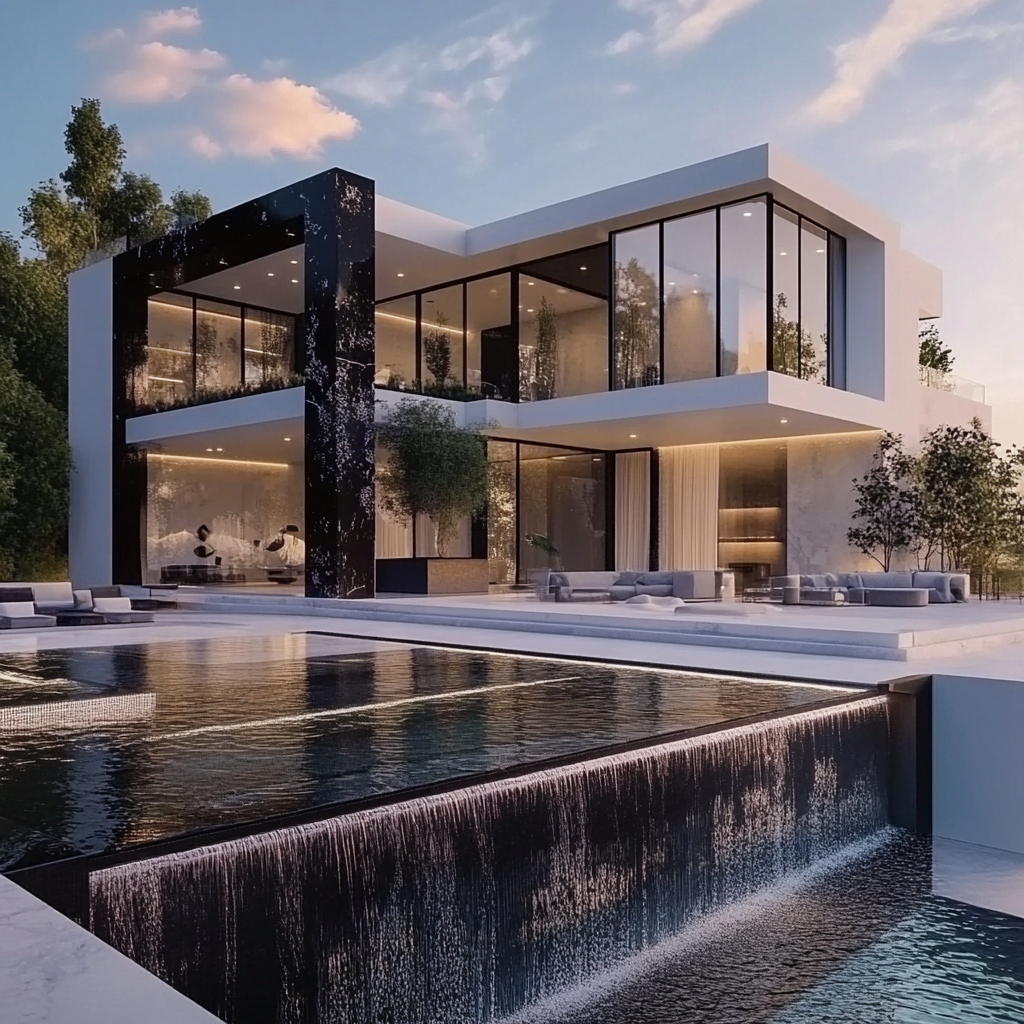
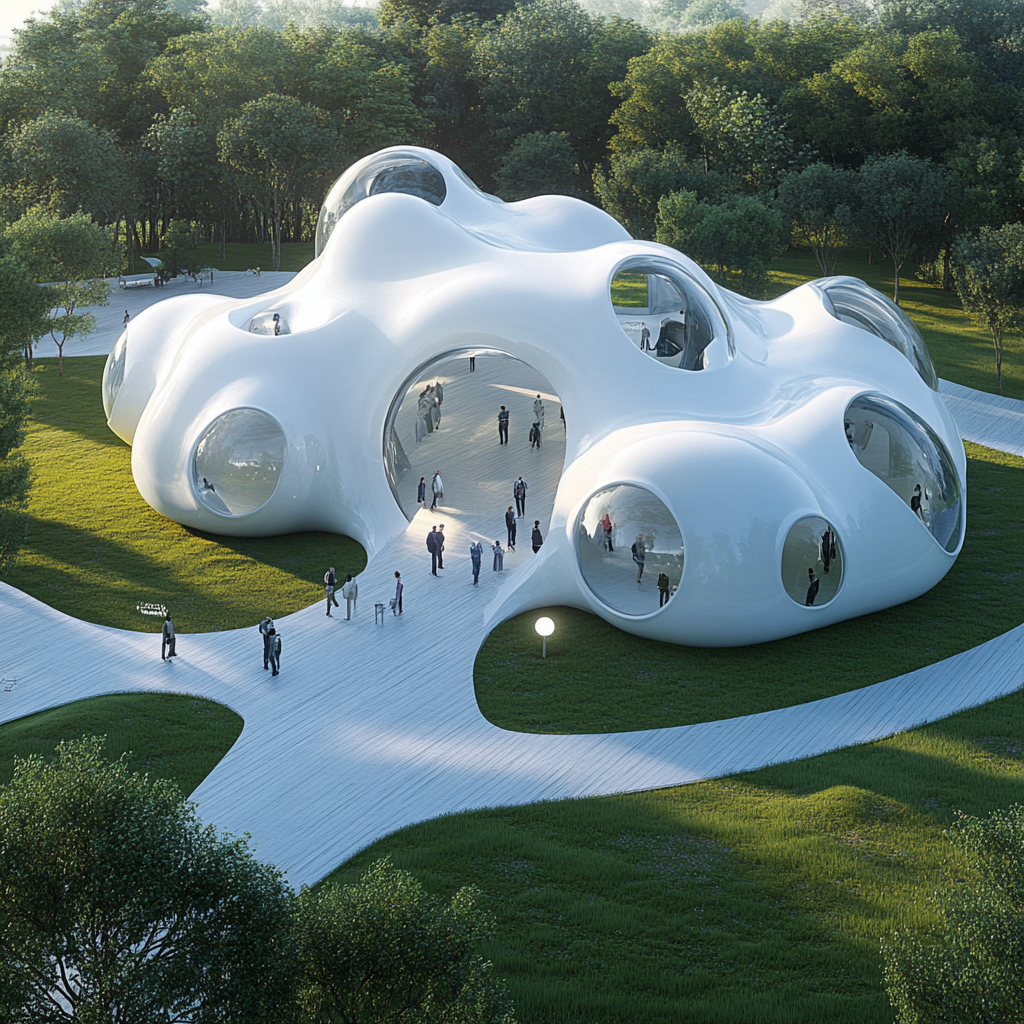
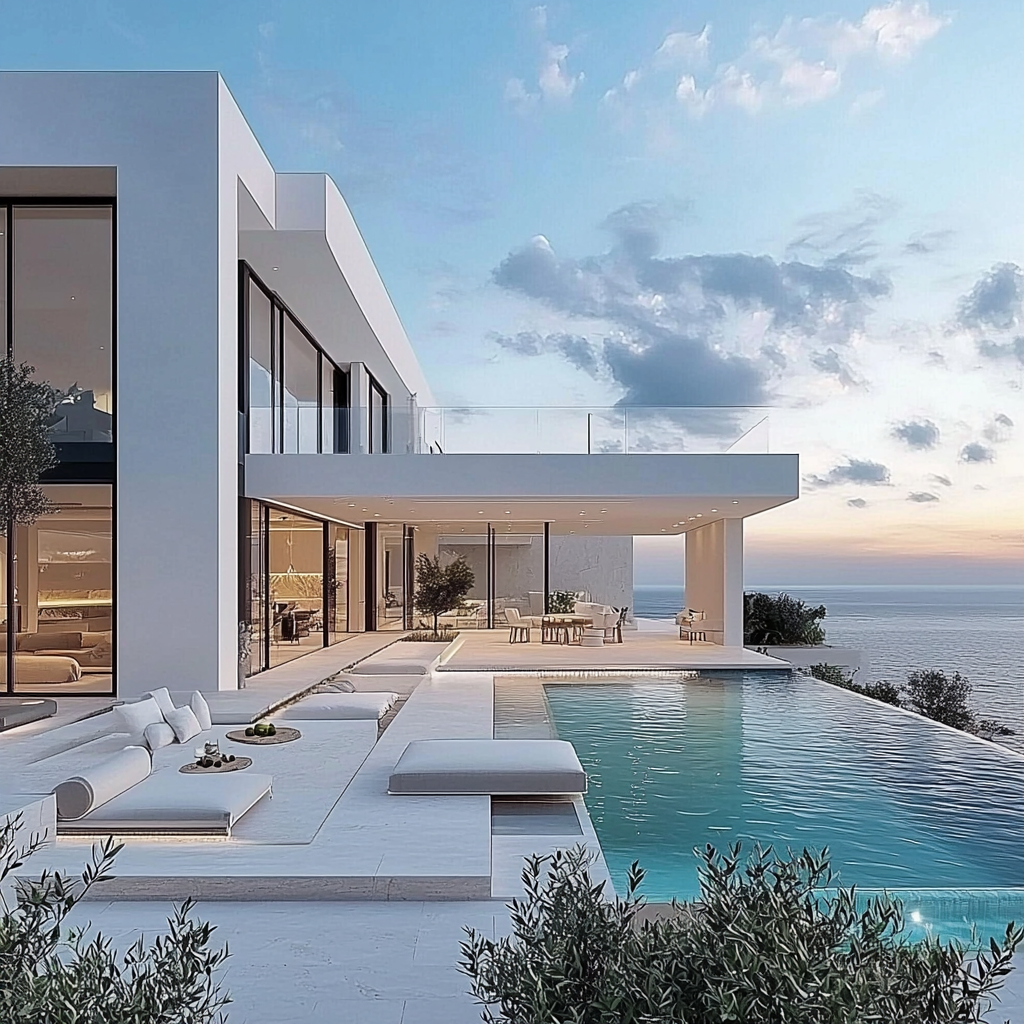
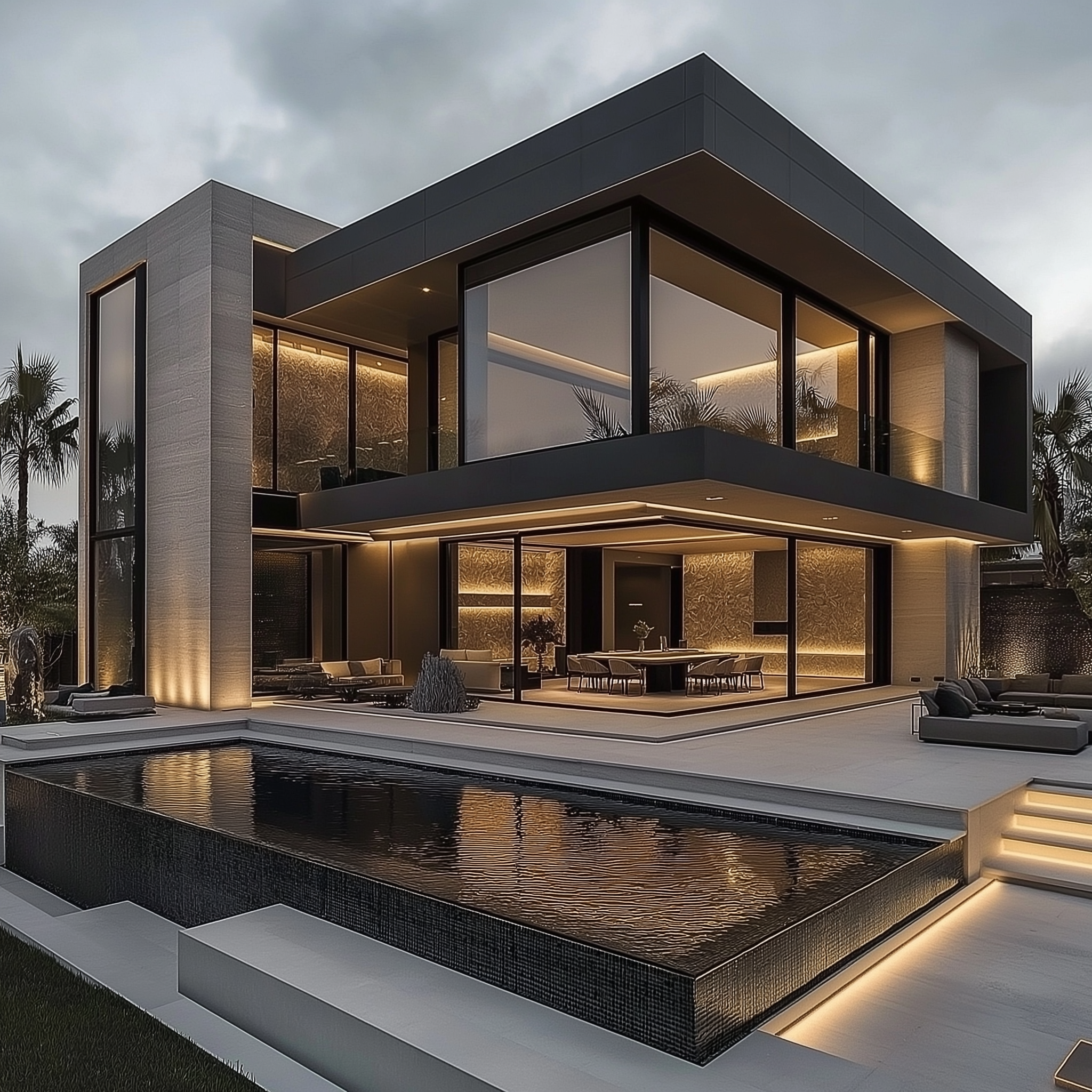
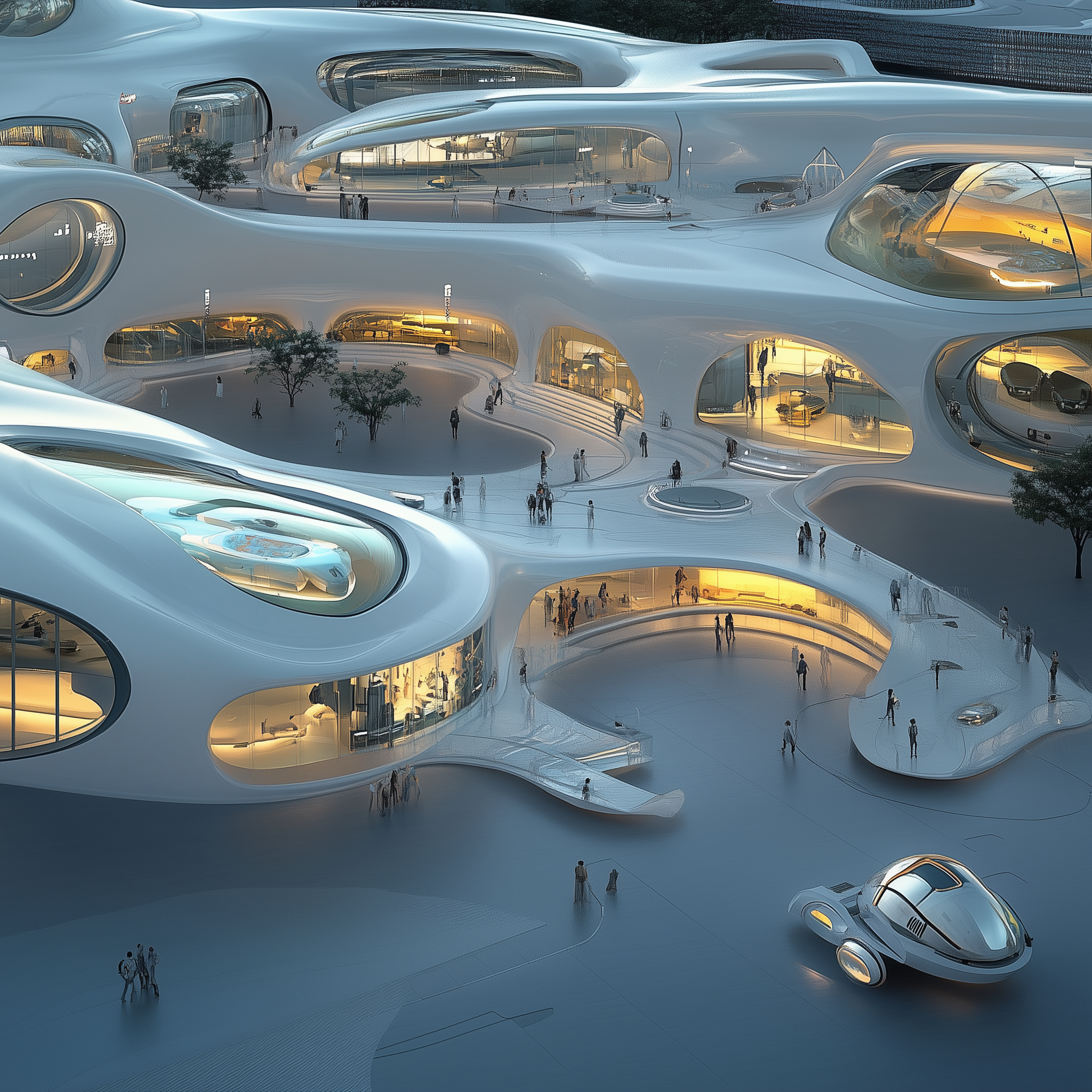
 Search
Search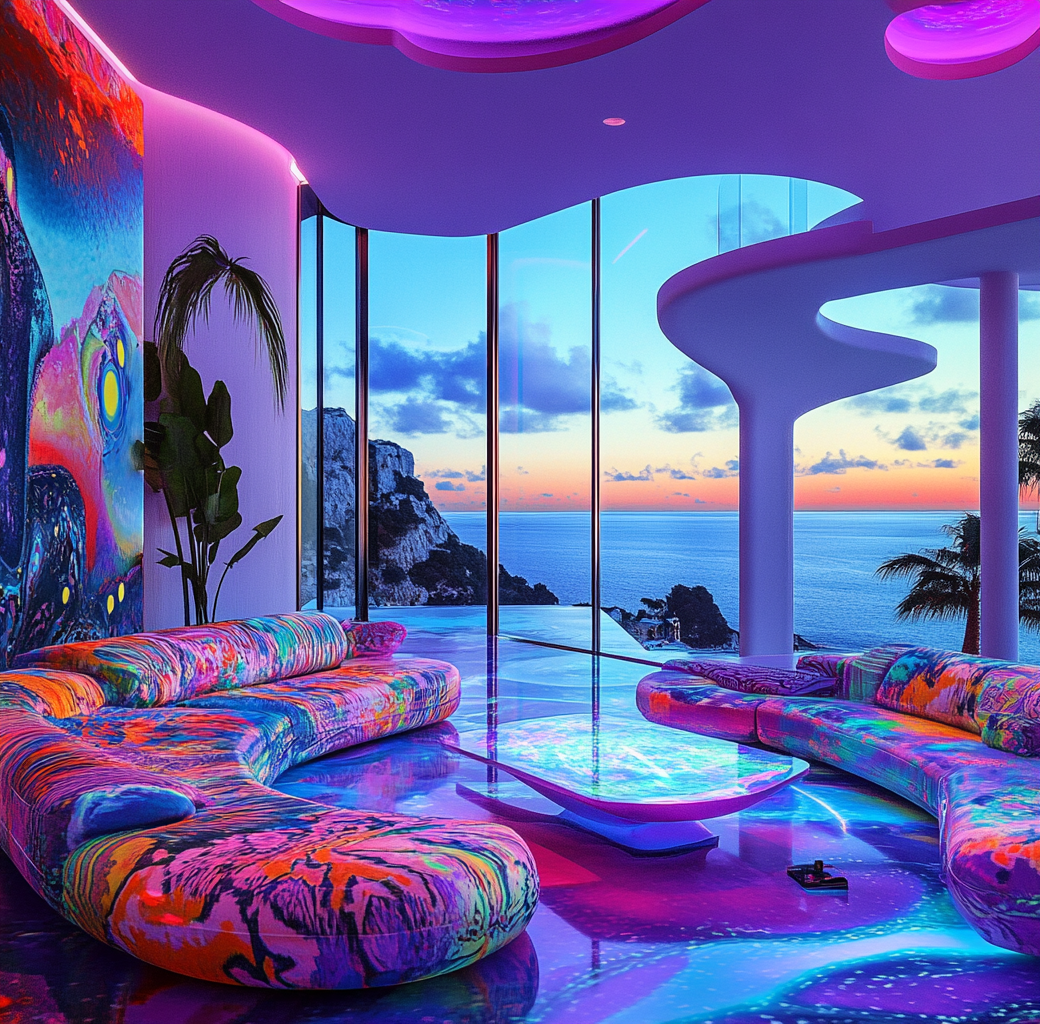

Comments (0)
Leave a reply